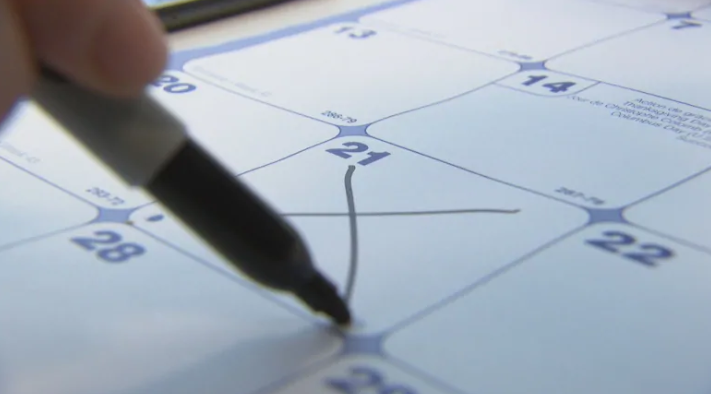
Conservative candidate says Oct. 21 federal election conflicts with Jewish holiday Shemini Atzeret
Canada’s chief electoral officer says it wouldn’t be “advisable” to change the federal election date, despite the fact that Oct. 21 coincides with a Jewish holiday.
Stéphane Perrault’s recommendation to keep the date as-is comes after Orthodox Jewish candidate Chani Aryeh-Bain — running for the Conservatives in the Toronto-area riding of Eglinton-Lawrence — and Orthodox Jewish political activist Ira Walfish asked that the date be moved to Oct. 28, a week later.
They argued that Elections Canada did not properly consider their rights under the Charter of Rights and Freedoms.
Last week, the Federal Court ordered Perrault to review his decision to not recommend a change in the scheduled date.
Perrault said he had to balance the ability of observant Jews to vote with ensuring “accessible voting opportunities for all Canadians.”
“There is no such thing as a perfect election day, especially in a country as diverse as Canada. There are always Canadians who are unable to vote on election day,” he wrote in his decision, released Monday.
“I conclude that it would not be advisable to change the date of the election at this late stage … This is a difficult situation that directly touches upon the very core values of our democracy.”
The chief electoral officer does not choose the election date and cannot change it once it has been set — but can recommend to cabinet that the election date be moved.
Aryeh-Bain had argued that during the Jewish holiday of Shemini Atzeret, which begins Oct. 20 and ends Oct. 22, observant Orthodox Jews must refrain from a number of activities — including voting and campaigning — and cannot ask others to work for them.
She also said that, aside from preventing her from participating on voting day itself, the federal election date will negatively affect her campaign. Eglinton-Lawrence has about 5,000 Orthodox Jewish voters, and in the last three federal elections the result was decided by margins of 2,000 to 4,000 votes.
Concerns about losing polling stations
The court’s judgment supported those claims and criticized Perrault’s decision, saying he did not adequately consider how the election date might infringe upon voters’ and candidates’ rights under the Charter of Rights.
In his own decision, Perrault acknowledged that two of the advance polling days conflict with either the Sabbath (which begins at sunset on October 11 and ends at sunset on October 12) or the first day of the festival of Sukkot, which begins at sunset on Sunday, October 13 and continues on the advance polling day of Monday, October 14.
However, he argues that outside of election day and advanced polls, all voters — including observant Jews — can vote by special ballot on any day from the election call to Oct. 15.
“There are several days during the election period where voting is not in conflict with their religious beliefs and where the special ballot process is open to them as to any other elector,” he said.
Perrault said preparations to find polling sites began in early 2018.
“Although the fact that election day coincides with Shemini Atzeret was brought to my attention during this period, the information I received from members of the Jewish community in August 2018 and the following months was that the religious constraints faced by observant Jews would be adequately addressed through outreach and alternative voting options and did not require a change in election day,” he wrote.
Another issue in Perrault’s eyes was the potential loss of polling stations, particularly ones in schools.
Elections Canada had encouraged school boards to consider designating Oct. 21 a professional development day, to make the schools available as polling stations. Thirteen school boards, including school boards in Quebec, Alberta and Newfoundland, followed through.
“The loss of schools and post-secondary campuses as polling locations for the upcoming election would negatively impact the ability of Elections Canada to provide electors with proximate and familiar polling locations to meet voter demand and limit the accessibility of the election. This is a consideration that factors significantly into my decision,” he wrote.
Nunavut election
He also pointed out that Oct. 28 is the date of the Nunavut municipal election.
While it’s not a Charter of Rights concern, “elections taking place concurrently in two jurisdictions create competition for local resources, including election workers and sites, and possible voter confusion,” wrote Perrault.
Prime Minister Justin Trudeau told reporters in Vancouver today he would continue to follow the advice of the electoral officer, adding that it’s an independent office.
NDP Leader Jagmeet Singh said it’s important that as many people as possible participate in the election.
“That should always be our motivating value in terms of when we set election dates,” he said. “When it comes to the date itself, I think it should remain independent and not a decision that is in partisan hands.”
Elections Canada says it will launch an information campaign aimed at Jewish voters to offer information about options for voting.


